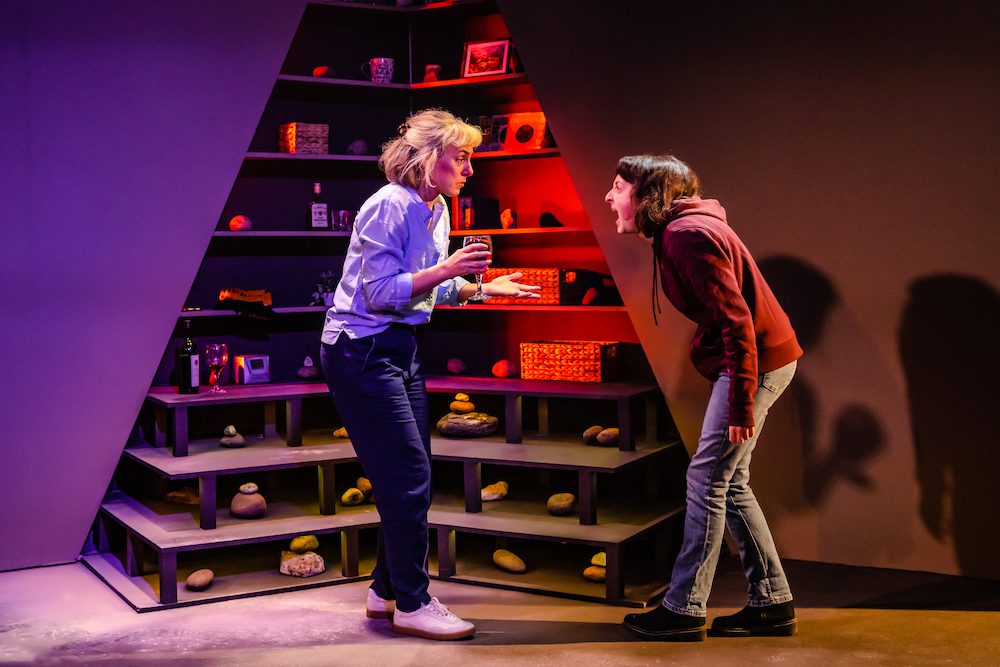Helen starts with a death. As the action begins we see Helen (Jo Mousley) and Becca (Chloe Wade) lose their husband and father respectively. As Chloe is only 16 at the time, this death is clearly untimely, though seems to be at the end of a long illness. The deep grief is, therefore, mingled with a sense of relief that the suffering is over.
This is a play about life after death. Not in the metaphysical sense, but in the more human, mundane and complex way encapsulated by the pat phrase ‘life goes on’. Helen and Becca’s lives do go on. But they do not go on unchanged.
Helen is a beautifully written and directed play. It captures the small moments that make up these two women’s lives as they grieve, move on and grieve again. The central performances are strong – especially Mousley as the eponymous Helen whose moments both made me laugh and cry throughout the 85-minute long run. Becca was, at times, a more tiresome character – but that complexity was well captured by Wade who made her interesting enough to understand the layers that existed within her development from stroppy teen to mother and carer daughter.
While the play is named for Helen, my only quibble with it is that Helen’s wider life is under-explored. We only relate to her through her relationships with others – whether that’s her daughter, her late husband, her colleagues, or those who care for her. I would have liked to have seen more exploration of her inner life and her sense of herself outside of these relationships.
This is largely rescued by the strength of the writing. The interactions between Becca and Helen feel both real and – in their everyday nature – important. This is a play that prioritises moments over story. It’s not a slice-of-life as such, but a series of snapshots that feel very real within a life.
As a two-hander that spans many years, the direction flows beautifully, giving us a sense of the passing of time and the ageing of the two characters despite their unchanged appearances. There was little physical intimation of ageing, and yet the sense of these women as they appeared to us at very different ages was visceral.
Helen feels like a very real, very heartfelt exploration of what happens to a family that suddenly goes from being a trio to a pair. How life can, does and must go on and how it is human nature both for us to want that and to not want it all at once. How we can want it for ourselves and resent it in others. It is a deeply human play about families and relationships and the holes that people can leave in our lives when they go.

